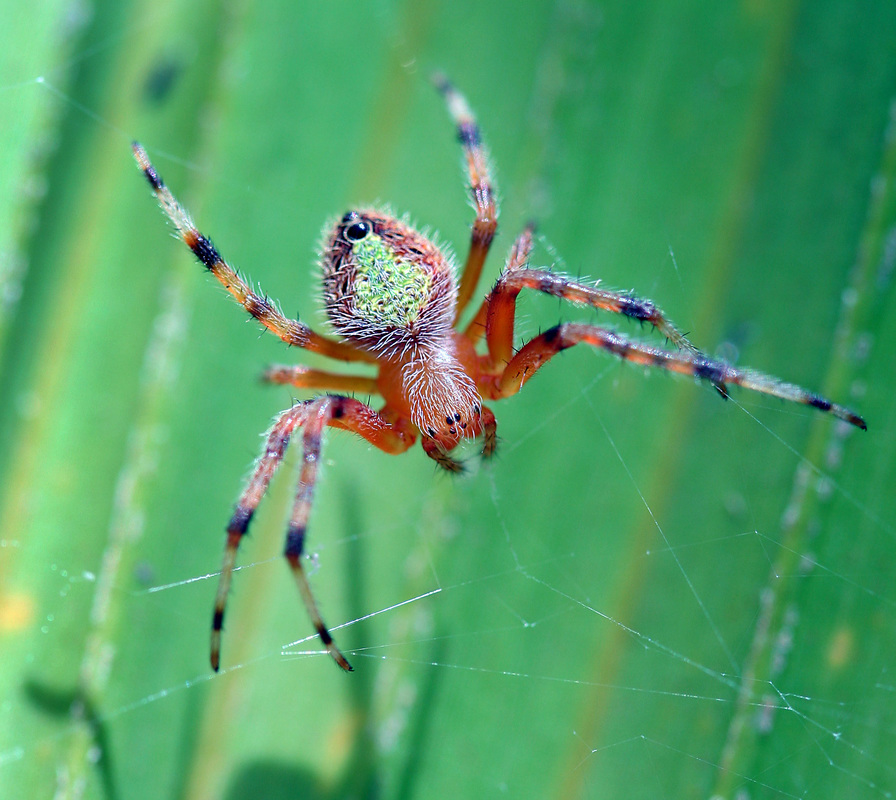|
Knowledge, Power, Beauty
Because so much of schooling is (necessarily) about terms and facts and isolated performance, I asked 8th graders to think about how power, beauty, and knowledge are related. They understood a lot: how one begets the other, how much each concept is of transcendent value. For me as a sciency sort, knowledge is the beginning. Because I know a lot about spiders, I get to experience their beauty. One, because I actually see spiders when you don't, because I subconsciously scan for the glint of silk in the grass. When I look closely, I am alert to the detail - the spination, eye arrangement, posture, position and function of the spinnerets. If you are a birder, you see (and hear) astonishing beauty that is invisible to me, because I have little knowledge of birds, and because I am distracted by spiders. Here is an analogy that my students get: I know soccer well enough to see the beauty of the game - the elegance of the footwork, the choreography of the attack on goal. I know nothing of hockey. I can't watch more than a minute of big guys skating around after the puck, which I assume is there, though I can't see it. Even the fights are boring, because players wear some kind of body armor that prevents any real damage. Knowledge is more obviously related to power. Political and economic power, sure, but those things don't directly get you to beauty and meaning. I tell my students that you want a diverse collection of knowledge about many things, to gain power over problems that interest you. I am a photographer, so I have the power to manipulate light and perspective to make beauty (as I perceive it). I can do simple carpentry and plumbing and electric, so I have some power over my living space. I know Spanish, so I have the power to access a lot that I would otherwise miss in my social surroundings. And so on. The beauty of this kind of connection between knowledge and power is that you can become very powerful, even when you are poor. |

